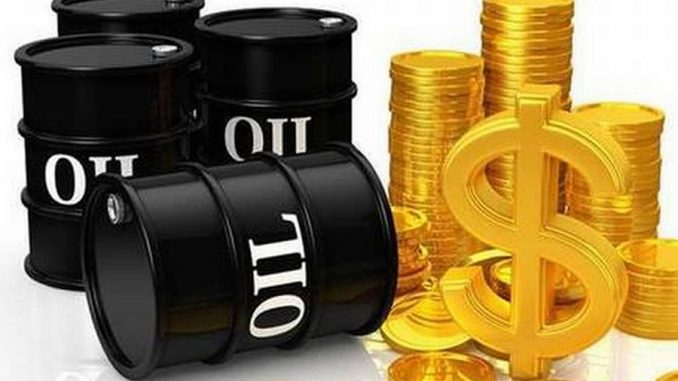
Oil prices have recorded the largest monthly drop in almost four years after Saudi Arabia signaled a move toward producing more and expanding its market share.
Nigeria’s benchmark, Brent crude futures were selling for $61.86 a barrel, while the US West Texas Intermediate (WTI) crude futures dropped to $58.21, about the lowest settlement since March 2021.
Oil prices have experienced a significant decline over the past month, attributed to a combination of factors, including increased supply, weakening demand, and strategic decisions by major oil producers such as Saudi Arabia.
The decline represents a stark contrast to the market’s performance earlier this year when prices were hovering closer to the $75.00 mark. The dramatic shift has caught many traders off-guard, particularly those who had positioned themselves for potential supply disruptions due to ongoing conflicts in the Middle East.
Earlier this month, Saudi Arabia pushed for a larger-than-planned OPEC+ output hike in May.
Several OPEC+ members will suggest a ramp-up of output increases for a second straight month in June, sources told Reuters last week. The group will meet on May 5 to discuss output plans.
Nigeria’s 2025 budget has been under pressure due to a significant drop in both global oil prices and domestic crude oil production. The government set a benchmark oil price of $75 per barrel with an expected daily output of 2.06 million barrels, but Brent crude prices have since declined.
Simultaneously, Nigeria’s crude oil production declined steadily from 1.495 million barrels per day in January to 1.465 million in February, with further drops reported in March. These twin setbacks threaten Nigeria’s fiscal stability, as oil accounts for the bulk of its export earnings and over half of government revenues.
However, in response, the federal government has acknowledged the need to reassess its budget framework and revenue strategies to address the shortfall.
Meanwhile, Nigerian billionaire, Aliko Dangote, said on Thursday that he was “comfortable” with the impact President Donald Trump’s tariffs would have on his urea exports to the US because major competitor Algeria had been slapped with a higher levy.
Trump imposed a 14 per cent tariff on imports from Nigeria, Africa’s largest oil exporter, as part of widespread trade measures introduced last month, later paused for 90 days, a Reuters report said.
Dangote was quoted by Reuters as having told an investment conference in Lagos that Dangote Fertiliser, which began commercial operations in 2022, shipped 37 per cent of its 3 million metric tonnes of urea production to the United States.
He said he was initially worried by Trump’s tariff on Nigeria, which also exports crude to the US.
“But when I checked who we are really competing with, we are competing with Algeria. So luckily for us Algeria were slapped with 30 per cent,” said Dangote. “So it actually makes us a bit comfortable,” he added.
Dangote, who built Africa’s largest petroleum refinery, said he expected revenues from Dangote Group, also a major cement producer, to grow to more than $30 billion next year from about $25 billion projected in 2025.



